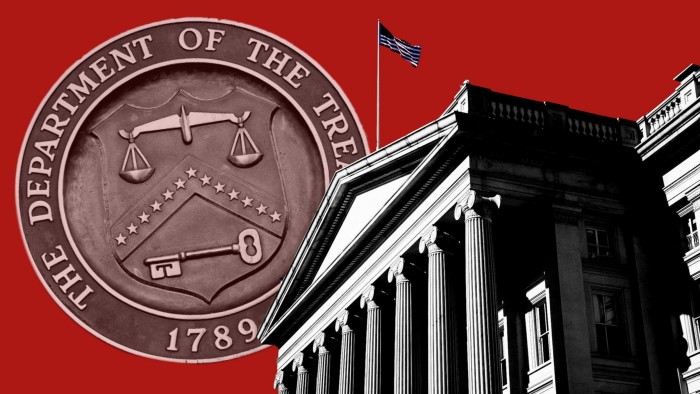Unlock the White House Watch newsletter for free
Your guide to what Trump’s second term means for Washington, business and the world
US assets sold off on Monday as fiscal concerns mounted following the loss of the country’s triple-A credit rating and Donald Trump’s massive tax and budget bill clearing a hurdle in Congress.
Yields on 30-year US Treasuries rose as much as 0.06 percentage points to 5 per cent on Monday during trading in Asia, while 10-year yields rose 0.04 percentage points to 4.52 per cent. Bond yields move inversely to prices.
US equity futures for the S&P 500 and the Nasdaq declined 1 per cent and 1.3 per cent, respectively. Gold prices edged up 0.5 per cent to $3,216 per troy ounce and the US dollar dipped 0.3 per cent against a basket of its peers.
The rise in bond yields came after a key congressional budget committee approved Trump’s tax bill on Sunday evening in Washington and after Moody’s downgraded the US’s triple-A sovereign credit rating on Friday evening. The rating agency warned about rising levels of government debt and a widening budget deficit.
“The bill is helping drive up the long end,” said Subadra Rajappa, head of US rates strategy at Société Générale. “It’s always hard to tell in markets beyond anecdotal evidence from price action, but it does seem consistent.”
The bill next goes to the House of Representatives for a full vote.
On Friday, five Republican lawmakers from the house budget committee had voted against the bill, stalling its progress. On Sunday, the package narrowly passed the committee vote.
Trump had put pressure on his party’s lawmakers to vote in favour of the bill. “Republicans MUST UNITE behind, ‘THE ONE, BIG BEAUTIFUL BILL!’” he wrote on social media on Friday. “We don’t need “GRANDSTANDERS” in the Republican Party. STOP TALKING, AND GET IT DONE!”
The legislation, which includes hundreds of billions of dollars in new tax cuts that are not offset by changes in spending, is expected to increase the federal deficit, which stood at 6.4 per cent in 2024 — well above levels economists view as sustainable in the longer term.
A bigger deficit means more Treasury bonds, driving down prices and lifting yields. Investors sold bonds in anticipation of extra supply and the potential inflationary impacts of the tax cuts.
The administration believes the tax cuts will boost growth, raise revenues and lower the US’s deficit. But the Committee for a Responsible Federal Budget projects the tax bill could add up to $5.2tn to the national debt over 10 years.
Source link









